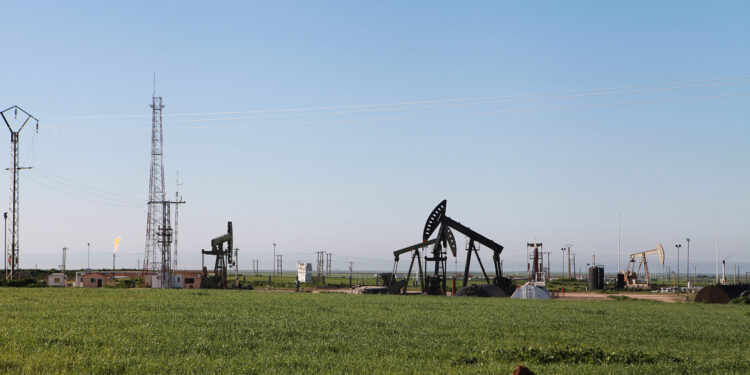Oil prices have risen on Friday, but are still on the way to registering the largest weekly decline since October, as the uncertainty caused by American commercial policy has sparked concerns about slowing demand, at a time when senior producers are preparing to increase production.
Prices fluctuate
By 07:46 GMT, Brent crude futures increased 50 cents, 0.72% to $ 69.96 a barrel, while US West Texas Intermediate crude futures rose 47 cents, or 0.71% to $ 66.83 a barrel.
Despite this rise, Brent crude decreased by 4.9% since the beginning of the week, heading to record the largest weekly loss since October 14, while West Texas Intermediate crude is heading for a weekly loss of 4.8%, and it is its largest since the same period.
Sharp fluctuations
The oil markets suffer from severe fluctuations due to the unstable trade approach to the United States, the largest oil consumer in the world.
US President Donald Trump said on Thursday that he will suspend the 25% customs duties imposed on most of the commodities imported from Canada and Mexico until April 2, but stressed that customs duties on steel and aluminum will enter into force on March 12 as planned.
However, this decision does not include Canadian energy products, which will remain subject to a 10%separate tax.
Analysts believe that these customs duties constitute a burden on global economic growth, and thus the demand for oil, and that uncertainty about commercial policies leads to slowing investment decisions, which increases pressure on the markets.
OPEC Plus continues to increase production
In a related context, oil prices were subjected to additional pressure after the Organization of Petroleum Exporting Countries (OPEC) and its allies in the OPEC Plus coalition to increase production from April, where 138 thousand barrels per day will be added to the market.
Brent prices fell on Wednesday to their lowest levels since December 2021, after announcing the rise in US crude stocks, which strengthened the fears of the abundance of supplies.
American pressure on Iran’s oil
On the other hand, the pace of prices declined temporarily with reports stating that the United States is considering taking additional steps to stop Iranian oil exports, one of the major producers in OPEC.
“We will stop the Iranian oil sector and the capabilities of manufacturing drones,” US Treasury Secretary Scott Bessent said in a speech to Wall Street executive officials.
Reuters quoted informed sources as saying that the Trump administration is studying a plan to inspect Iranian oil tankers in the sea, using an agreement aimed at banning weapons of mass destruction, as part of the policy of “maximum pressure” that Washington adopts to reduce Iranian oil exports to scratch.



